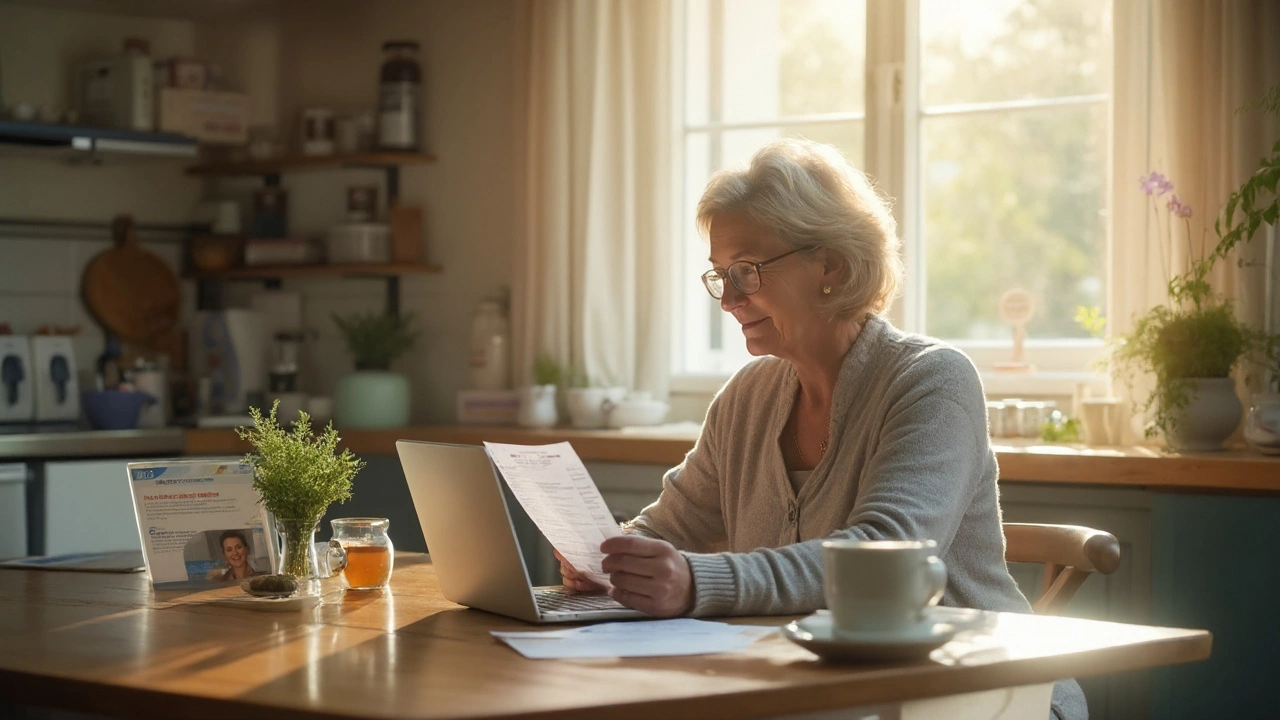Safe online pharmacies: simple checks to avoid scams
Scams in online pharmacies still happen, but you don't need to be an expert to spot a bad site. Want medicine fast and safe? Ask a few quick questions before you click "buy" — and I'll show you exactly which ones matter.
Quick checks before you buy
First, does the site require a prescription for prescription-only drugs? If not, that's a big red flag. Legit pharmacies always ask for a prescription and may even call your doctor to confirm. Next, look for a visible license number or pharmacy registration on the site. Trusted pharmacies list their license and the country of operation.
Secure the connection: the web address should start with https:// and show a padlock icon. That protects your card and personal data. Check contact info — a real phone number, a physical address, and working customer support are good signs. If the only contact is a web form or vague email, be cautious.
Scan for accreditation. In the U.S., look for NABP/VIPPS certification; in other countries, find local regulatory seals and verify them on the regulator's site. Don’t trust badges that are just images — click them to confirm.
Read independent reviews and complaints. Look beyond the site’s testimonials: check forums, consumer watchdogs, and pharmacy review sites. Pay attention to shipping times, packaging complaints, and reports of wrong or counterfeit pills.
Smart ways to save without risking safety
Cheap prices are tempting, but extremely low rates compared to local pharmacies often signal fake or substandard products. Instead, compare prices among verified pharmacies and ask about generics — many generics are safe and much cheaper. If a site offers massive discounts only if you pay by wire transfer or crypto, walk away. Use a credit card for extra fraud protection.
If you need a rare or controlled drug (like some TB meds or strong painkillers), stick with domestic, accredited pharmacies. International sellers can be fine for standard drugs, but shipping, customs, and legal restrictions add risk.
Keep records: save order confirmations, receipts, and tracking info. Inspect packages when they arrive — check pill appearance, packaging, and expiration dates. If anything looks off, stop taking the medication and contact your prescriber.
When in doubt, call your doctor or local pharmacist and ask for advice. A short question can save you from counterfeit meds or harmful interactions. Buying medicine online can be safe when you use simple checks rather than chasing the cheapest deal.
Need a quick checklist to print or keep on your phone? License, prescription required, HTTPS, real contact info, accreditation badge verified, independent reviews, reasonable price, secure payment, tracking and clear packaging. Follow these and you’ll cut the risk a lot, while still getting the convenience of online pharmacies.

Colchicine Online: Safe Ways to Buy & Order This Gout Medication
Find out how and where to safely buy colchicine online for gout. Get clear tips, risks, legal details, and smart shopping advice to avoid scams.
